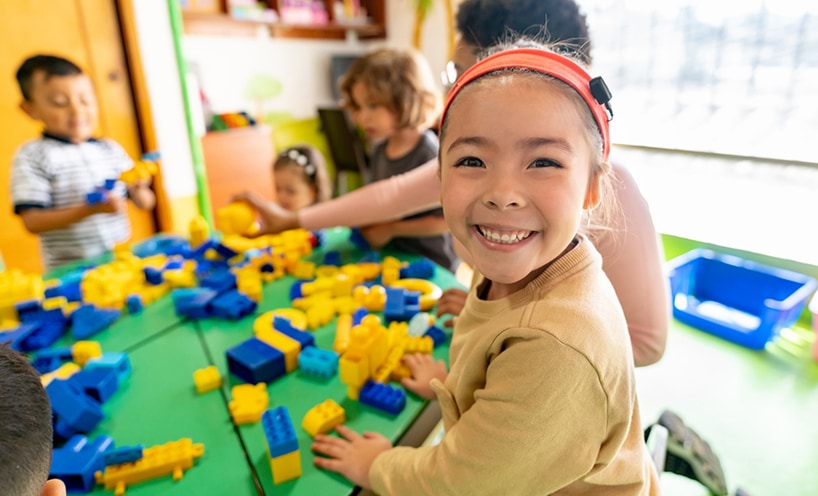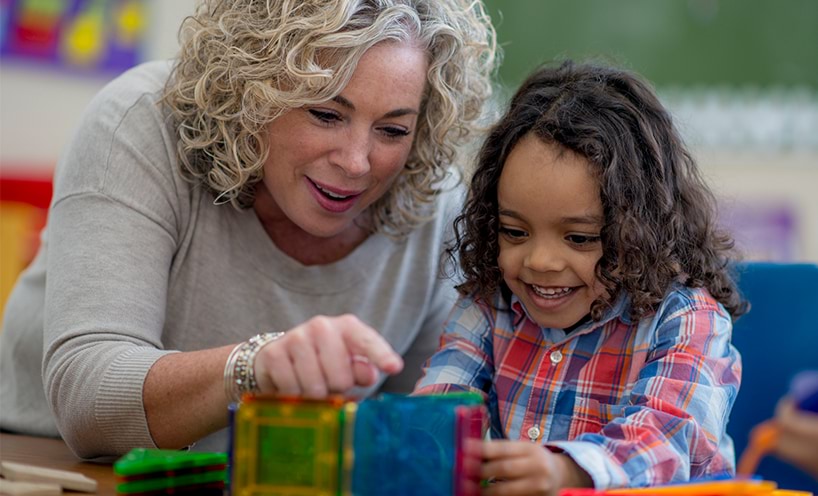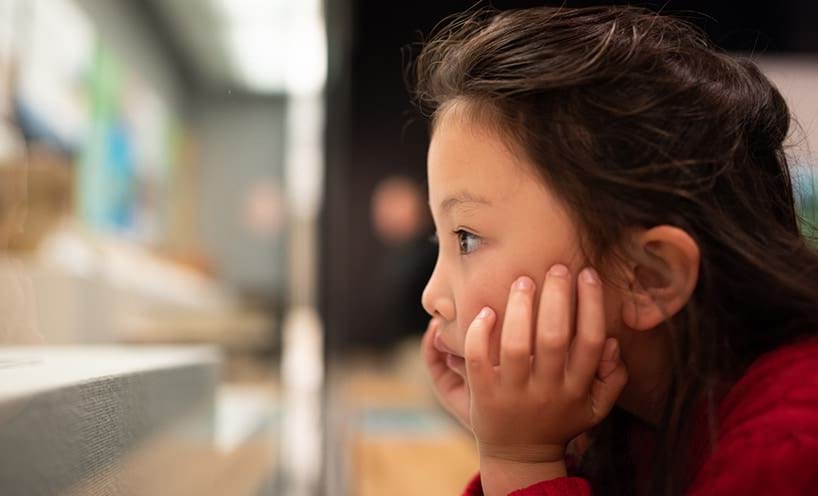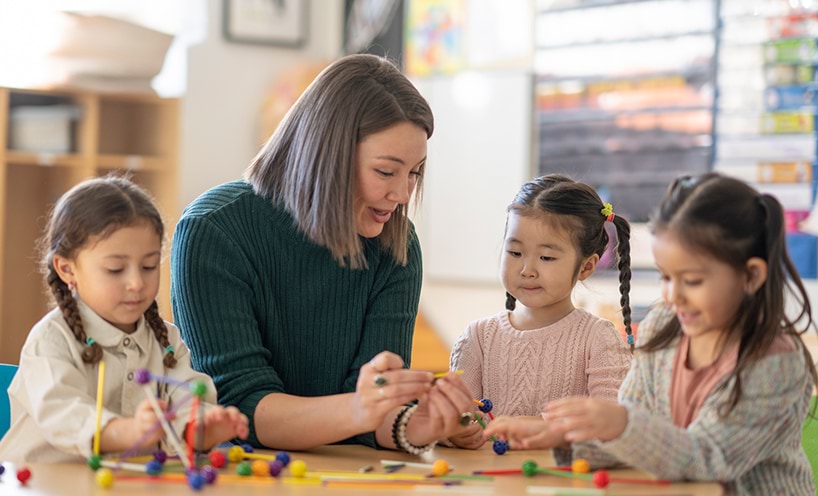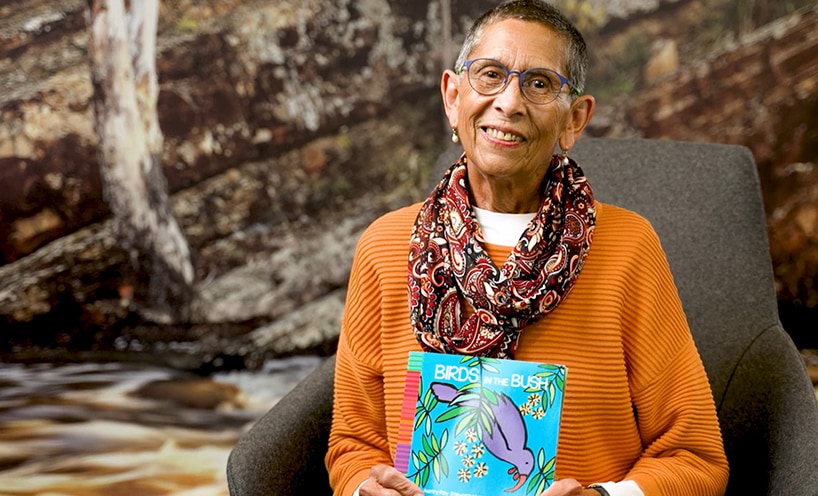- Date:
- 7 Mar 2024
The Early Childhood Update e-newsletter is sent to early childhood teachers and workers, but is open to anyone interested in best practice in early years education and evidence-based teaching approaches. Subscribe here to receive the e-newsletter(opens in a new window).
Best Start, Best Life Leadership Series and building our workforce
Building the workforce we need for the groundbreaking reforms.
Dear early childhood education and care services
Welcome to another edition of Early Childhood Update. I trust everyone has settled into the new year, and you’re continuing to take pride in your work that does so much for the young children and families in our communities.
With the first Pre-Prep enrolments opening in roll-out areas in coming months, one of the standouts this month is our Best Start, Best Life Evening Leadership Series, which kicked off last night (Wednesday 6 March 2024) at the Victorian Academy of Teaching and Leadership in North Melbourne.
This was the first in our free events series, and was a great chance to hear from highly regarded professionals and early childhood education experts on how service leaders can prepare for Pre-Prep, which starts rolling out from 2025.
Thanks to everyone who joined us either in person or online. If you weren’t able to make it, we’ll be sharing highlights from the event in future editions of Early Childhood Update, so stay tuned.
Meanwhile, March also means Cultural Diversity Week (Monday 18 to Sunday 24 March 2024). It’s a great time to celebrate our state's diverse, vibrant multicultural communities.
Supporting diversity and inclusion plays a vital role in children’s learning and development. Children achieve better outcomes when their diverse strengths, abilities, interests and cultural practices are understood and supported. Children’s learning and development are shaped by their personal, family and cultural histories, and we know that children learn when early childhood professionals respect their diversity and provide them with the best support, opportunities and experiences. This is why Cultural Diversity Week is such an important time in our calendar. Please check out the website for information about the week’s events and other ways to get involved.
And to wrap it up this month, we go behind the scenes of our popular Kinder Kits to meet the makers of these wonderful resources, exploring what goes into making these valuable and inspiring kits.
I invite you all to read and share this month’s edition with your colleagues, while also taking time to celebrate Cultural Diversity Week.
Bronwen FitzGerald
A/Deputy Secretary
Early Childhood Education
Pre-Prep to roll out in 2025
Regional areas first to benefit as Four-Year-Old Kindergarten starts to transition to Pre-Prep by 2032.
Some information on this webpage is out of date following the 2024/2025 budget. In the short term, please refer to The Best Start, Best Life reforms.
From 2025, Four-Year-Old Kindergarten will gradually transition to Pre-Prep, with funded kindergarten programs across Victoria increasing from 15 to 30 hours each week by 2032.
Led by qualified teachers, Pre-Prep will give children greater opportunities to socialise and learn through play and create stronger connections with children and families. Pre-Prep will be delivered through standalone (sessional) kindergartens and long day care centres.
Pre-Prep will start in 6 local government areas (LGAs) in 2025 and gradually roll out across the state. New LGAs will be added to the roll-out each year.
The staged schedule allows time to grow the necessary workforce and infrastructure, and for services to get ready to run expanded programs.
By 2032, children across Victoria will have access to 1,800 hours of funded kindergarten before school, comprising 600 hours of Three-Year-Old Kindergarten and 1,200 hours of Pre-Prep.
2025 Pre-Prep roll-out
Pre-Prep will be available to children in the following local government areas in 2025:
- Ararat
- Gannawarra
- Hindmarsh
- Murrindindi
- Northern Grampians
- Yarriambiack.
Pre-Prep programs will be between 16 and 30 hours each week. Our early childhood improvement branches are available to offer tailored support, including about modelling options, to assist services in the 2025 roll-out.
The department has sent interim policy and funding settings to approved providers who have services starting Pre-Prep in 2025.
These settings apply to 2025 Pre-Prep delivery only, and we will provide further details on the 2026 Pre-Prep policy and funding settings later in the year. We will update the Kindergarten Funding Guide to reflect the interim funding arrangements.
Find out more
For more information, refer to the Pre-Prep roll-out schedule.
For further enquiries, contact your local Early Childhood Improvement Branch.
Effective Mentoring Program for experienced teachers
Complete the free program and help provisionally registered teachers to gain full registration.
Registrations are open for experienced teachers looking to support provisionally registered teachers (PRTs) achieve full registration with the Victorian Institute of Teaching (VIT).
A partnership between the department and the Victorian Institute of Teaching (VIT), the Effective Mentoring Program (EMP) is designed for experienced teachers who are mentoring provisionally registered teachers in schools and early childhood settings.
By the end of the free program, participants will:
- develop mentoring skills to support all teaching colleagues, in line with the Mentoring Capability Framework
- qualify to be the VIT-trained mentor on workplace recommendation panels
- achieve certification (including professional learning hours towards VIT registration)
- have completed activities that support applied learning between program days
- have learned about current research and practice in mentoring.
A backfill contribution of up to 2 days is available in 2024 for early childhood participants to attend the program.
Eligibility
The program is for experienced teachers who hold a current VIT registration and are mentoring PRTs in:
- government, Catholic and independent schools
- early childhood and education care settings
- non-school education centres (for example, hospitals and zoos).
Program requirements
To complete the EMP, participants are required to attend both days of the program and complete the pre- and post-event online modules.
The 2-day program will be delivered face to face from Term 1 to Term 3, 2024, with a limited number of online seminars available to participants who are unable to access a face-to-face seminar.
A one-day refresher program is also available for teachers who have previously completed the EMP.
How to register
Registrations are now open for 2024, but places are limited so get in quick.
To register and for more information regarding dates, refer to the full 2-day program or one-day refresher program.
Find out more
For more information, including how to access backfill, refer to the Effective Mentoring Program.
For further enquiries contact the department by email: ec.mentoring@education.vic.gov.au
Partnering with Museums Victoria
New partnership creating more learning opportunities to help children get the best start to life.
The department has formed an exciting partnership with Museums Victoria.
This new partnership builds on the department's existing funding to deliver programs through Museums Victoria's Outreach program.
Museums Victoria creates world-leading education projects that are aligned with the Victorian Early Years Learning and Development Framework, reflecting our shared goal in ensuring the best outcomes for every child.
Connecting with families and children
We worked in partnership with Museums Victoria to support Scienceworks' Little Kids' Week. The event saw hundreds of families take part in fun activities that celebrated the power of play.
We’re also supporting Little Kids Day In, a program that encourages children 5 and under and their parents and carers to head to Scienceworks for a day of robot and coding fun.
Along with that, we’re working with Museums Victoria to deliver the Museum Victoria’s Tiny Tours, which will give children the chance to enjoy a 45-minute tour guided by a learning expert, to explore the museum like never before.
Professional development
Museums Victoria also delivers professional development to early years educators.
The professional development program supports our focus on the recruitment, upskilling and retention of early childhood teachers and educators.
Find out more
For further enquiries, contact the department by email: ec.portfolio.communications@education.vic.gov.au
Financial support for educators to upskill to a diploma
Applications for financial support to study a Diploma of Early Childhood Education and Care in 2024 have reopened
Applications are now open for the second round of the Certificate III Upskill Support Program (CUSP) and must be submitted by Monday 15 April 2024.
First launched in December 2023, the program offers financial support of up to $7,000 (before tax) for educators who currently hold a Certificate III in Early Childhood Education and Care and want to upskill to a Diploma of Early Childhood Education and Care in 2024.
Students can use the money to contribute to cost-of-living expenses while studying and working, particularly while on placement.
The program is one of a range of financial support options available to help people to study and work in early childhood. It’s all about supporting educators to build their skills so they are in the best position to take on leadership roles and other professional opportunities.
Building our workforce
There has already been high demand for the program from educators across Victoria, including Tayla Catlin, who has worked in early childhood education for 6 years since completing her Certificate III.
Based in Morwell, in Gippsland’s Latrobe Valley, Tayla works in a small service assisting vulnerable and at-risk families.
She said the program would allow her to build on her training in supporting children with additional needs and those impacted by trauma.
‘The scholarship will enable me to have further support to have study time, and to complete placement while working as a room leader,’ Tayla said.
Easing the burden
After moving from the United Kingdom following the COVID-19 pandemic, educator Lily Joslin said the scholarship is a much-needed support.
‘This scholarship will enable me to fully commit to a career making meaningful changes in children's lives,’ Lily said.
How to apply
All eligible educators are encouraged to apply, but please note that places are limited – so make sure to get your application in on time.
You can apply for the program through the Client Portal.
Applications close Monday 15 April 2024.
Eligibility requirements
Before submitting your application, please read the CUSP Program Guidelines to check your eligibility.
Find out more
For more information, refer to Financial support to study and work in early childhood.
For further enquiries, contact Busy At Work (who administer the program on behalf of the department):
- phone: 1300 161 396
- email: ec.financial.support@education.vic.gov.au
Kinder Kits: meet the makers
Check out these videos to get to know the people behind the kits bringing joy to kindergarten children across Victoria.
Pictured: Aunty Fay Stewart-Muir, author of Birds in the Bush
Aimed at celebrating the value of learning through play, Kinder Kits are activity boxes filled with books, educational toys and activities made especially for 3-year-olds to enjoy at home.
And now, a video series featuring the makers of educational toys and books included in the popular Kinder Kits is available to watch online. We encourage you to share these stories on your own social media channels.
And through our Meet the Makers videos, we learn more about the people behind the collection of resources that is having such a big impact kindergartens across the state.
Learning resilience
Among the creators featured in the videos are James and Ryan from Cherub Baby, who developed the balancing gems.
‘The idea behind it is to promote open-ended play, because there are almost limitless ways in which you can balance the stones and then coordinate the colours,’ James said.
‘Children are using their fine motor skills, they're learning about colours, they're learning about shapes, they're learning about concentration, and they're experiencing emotions, and experiencing how to handle those emotions.’
Tri-lingual reading
The video series also features the author of Birds in the Bush, Boonwurrung, Wemba Wemba and Wergaia woman, Aunty Fay Stewart-Muir.
The book is written in Boonwurrung with the English translations underneath. There’s also a dotted line at the bottom of each page where kids can add their own language.
‘It's just something that I want to really focus on is getting my language spoken again. So that all kids, not just Aboriginal children, all children, can speak a First Nations language,’ Aunty Fay said.
Stimulating imagination
Everything inside the Kinder Kits encourages creativity and open-ended play.
These kits come with various educational items, including Tinta Crayons — also featured in the video series.
Tinta Crayons is a Melbourne-based company established in 2015 that produces handmade, natural and safe beeswax crayons. The crayons included in the Kinder Kits have a clever petal design that helps children develop finger grip, which prepares them for writing while they play.
Help using the kits
For help guiding their child's early learning and development at home, parents and caregivers can access resources including:
- a Guide for Families with tips and suggestions, available as a:
- printed guide available in each kit
- translated guide available in 29 languages online
- video guide for families.
- video readings of the books, with Auslan translations:
- Birds in the Bush by Aunty Fay-Stewart and Jeanette Rowe
- Where Is Galah? By Sally Morgan
- I Just Ate My Friend by Heidi McKinnon
- Heads and Tails by John Canty.
Find out more
For further enquiries, contact the department by email: kinder.kits@education.vic.gov.au
